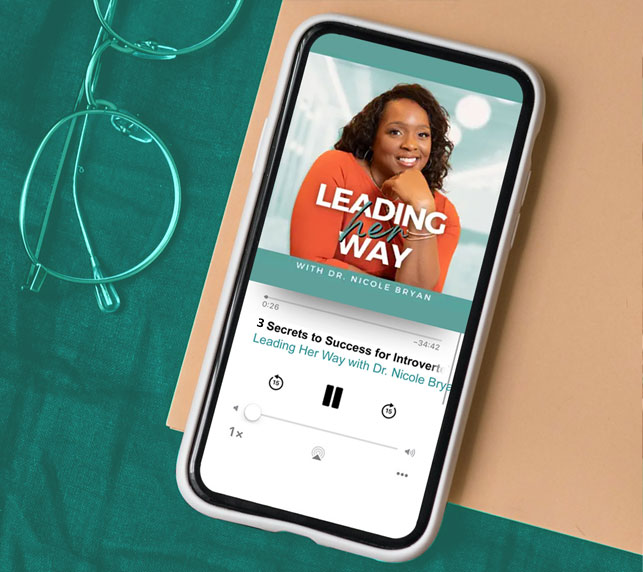Is a mentor or sponsor right for you? I’ll cut to the chase. The answer is YES – BOTH.
Now that we got that out of the way, let’s back up a bit. We should probably start with what is a mentor and a sponsor.
Oxford Dictionary offers the following definitions:
- Mentor (noun) – an experienced and trusted adviser
- Sponsor (noun)– an individual or organization that provides support for someone or something, by supplying cash, influence, or power
Today, in the world of work, the above definitions are still fairly accurate.
When Should You Get a Mentor Versus a Sponsor
You can probably already tell by the definitions that it doesn’t have to be an “either – or” scenario. It is very possible, and common, to have both a mentor and a sponsor at different points in one’s career.
In fact, the most successful professionals often have several of each throughout their career journey. And in some instances, a mentor can also be a sponsor and vice versa. But each type of relationship should be leveraged strategically. Here’s what I mean.
In a nutshell, mentors are generally more experienced professionals and offer advice and wisdom to those with less experience. Mentors can be internal or external to your current organization. Sponsors are also more seasoned professionals, but are usually senior leaders or executives within your organization or discipline with the ability (and desire) to use their reputation and power on your behalf.
Important Tip: Before seeking a mentor or a sponsor, you should determine exactly what kind of support you want and need.
“I need help in my career” is too general to make a mentor versus sponsor decision. It would be important to narrow that down to the specific type of help needed. For example, if you are trying to decide on a specialty area in your field, finding a mentor who already went through the process would be of huge value to you. The mentor would be able to share their own experiences, verbally guide you through the process, and even share resources that could be of help. Remember, mentors guide you.
On the other hand, if you’ve already decided on your specialty area and would like to join the new project team focusing on this, it would be extremely helpful to have a sponsor that would invest in helping you to get that role. Sponsors advocate for you.
Although both types of relationships can be shaped into whatever makes the most sense for those involved, historically mentor/mentee relationships have usually been more one-sided (with the mentee receiving more of the benefits) while sponsor/protégé relationships have been more give-and-take where both parties receive mutual benefits.
Some people already have existing mentor or sponsor relationships – but in an informal capacity, and never label them as such.
Steps to Find Your Mentor or Sponsor
But if you are interested in getting a formal mentor or sponsor, you should:
- Determine what specific help or support you need. (this will clarify whether a mentor or sponsor makes the most sense for you right now)
- Create a list of criteria you want in a mentor or sponsor. For example, what you need help with (#1 on this list) might dictate certain criteria such as demographics (i.e. a woman, years of experience in the field, strong reputation and influence in your organization, someone who can offer a different perspective, etc.)
- Reach out to establish or deepen your relationship. There is no one way to establish a relationship with a prospective mentor or sponsor. If you already have a relationship with the person, then it may be as simple as asking for time to share your goals and ask for their counsel and support. But if a relationship doesnt already exist, then the most ideal way to get connected is to ask a mutual acquaintance for an introduction. If that is not possible, then reaching out directly via email or phone would work also. Keep in mind that a little bit of flattery can go a long way. Use the reason they rose to the top of your list as “a way in” – “Since I joined the company, I’ve heard many great stories about all the things you’ve accomplished. I was just promoted to Regional Sales Director and am already learning a lot in the role. It is making me think about my own long term career goals. I know you also were a Regional Sales Director earlier in your career. Would you mind if I asked you some questions about how you carved your own path?”
Important Tip: Always have at least one or two mentor/sponsor back up options. Time is a very hot commodity these days so if your first choice is not able to invest in this type of relationship right now, you will want to have valid alternatives at the ready so you don’t have to start from scratch.
- Take the lead. You will want to make things as easy as possible for your mentor/sponsor. Although you can ask their preference on where and how often to connect, you should take the lead on organizing those connections. Setting calendar appointments, choosing locations, having topics to discuss, etc. It would also show a lot of initiative if you proactively ask your mentor/coach about ways you could help and support them.
- Take action on feedback and advice. The one surefire way to deepen your mentor/sponsor relationship, is to demonstrate that you listened to and took action on their advice and feedback. Make sure you communicate when you’ve acted on their recommendations, what the outcome was, and thank them. And if you didn’t take their advice, communicate that too as well as your reasoning so they understand and don’t assume that they are wasting their time and counsel on you.

Finally, when the time is right, you should consider paying it forward if you aren’t already doing so. Just as you will benefit from the counsel and influence of a mentor/sponsor, others will benefit when you are ready and able to pass along your own wisdom and support.
Additional Resources:
10 Tips for Finding a Mentor – and Making the Relationship Count by Lisa Rabasca Roepe
The Right Mentor Can Change Your Career. Heres How to Find One by Anjuli Sastry & Andee Tagle
https://www.npr.org/2019/10/25/773158390/how-to-find-a-mentor-and-make-it-work
Sponsor versus Mentors: What’s the Difference and Why It Matters by Eileen Hoenigman Meyer
Additional Resources
1.10 Tips for Finding a Mentor – and Making the Relationship Count by Lisa Rabasca Roepe
2.The Right Mentor Can Change Your Career. Heres How to Find One by Anjuli Sastry & Andee Tagle
3.Sponsors versus Mentors: What’s the Difference and Why It Matters by Eileen Hoenigman Meyer





